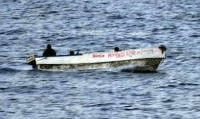The warning was a dire one, especially considering its source. In the July issue of the U.S. Naval Institute's Proceedings magazine -- the unofficial professional journal of the U.S. Navy, Marine Corps and Coast Guard -- an officer of the Indian navy, Akash Chaturvedi, claimed that Islamic extremists had teamed up with sea pirates in Somalia to form a "nexus of piracy and terrorism [that] will be dangerous for both the world economy and security." The world must act, Chaturvedi insisted, to prevent "another 9/11 -- this time at sea."
Events this week only heightened the sense of alarm embodied by Chaturvedi's article. On Sunday, two bombs exploded in Kampala, Uganda, killing 74 people. Al Shabab, the main Somali Islamic group, claimed responsibility -- describing the attacks as retaliation for Uganda having sent peacekeepers to Mogadishu to back Shabab's main opponent, the moderate Islamic Transitional Federal Government.
If Shabab can strike at neighboring Uganda from its Somali base, the reasoning goes, imagine the long-range terror the group might inflict with hundreds of pirates providing additional funding and transportation to the Islamists.

